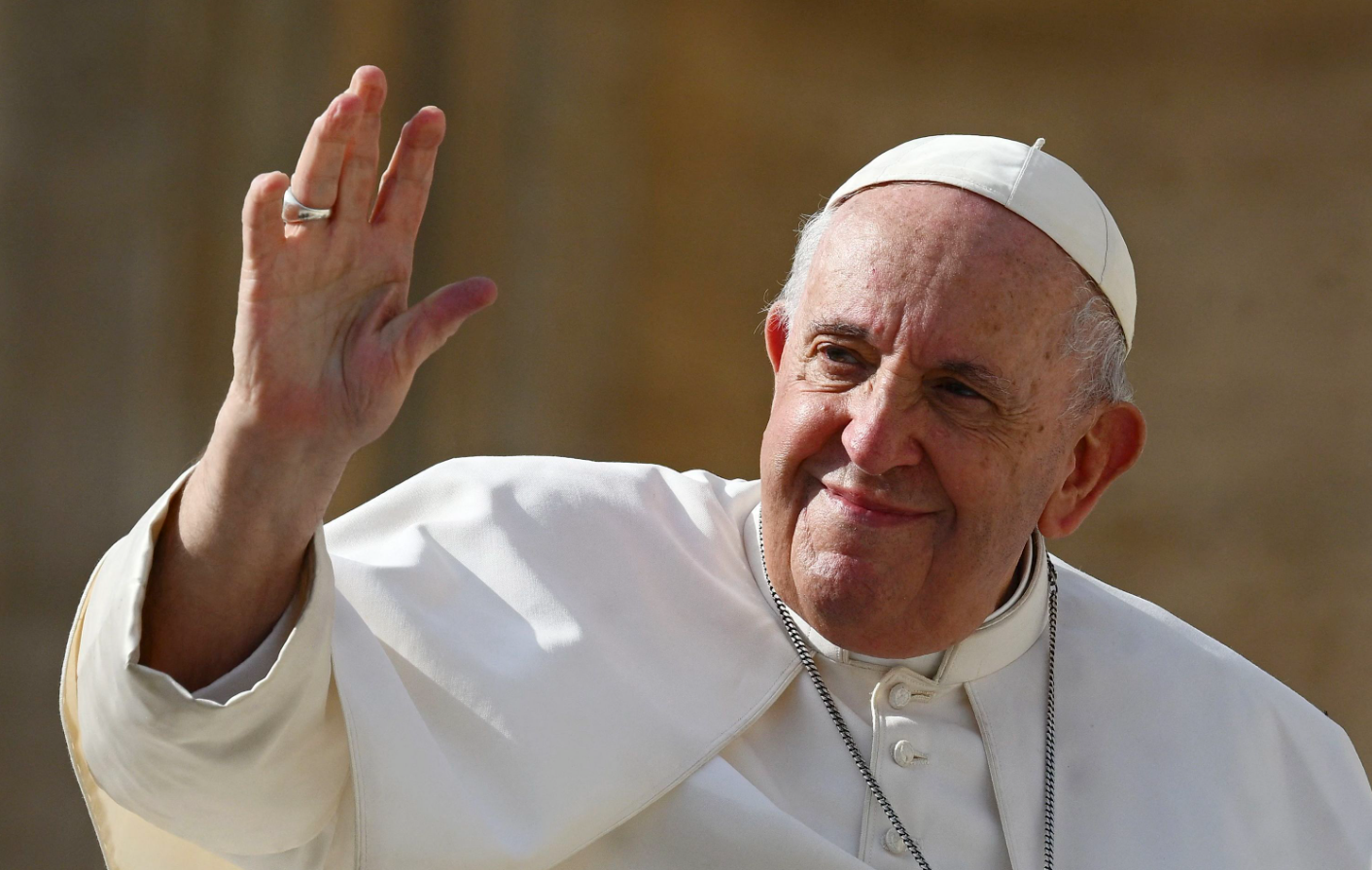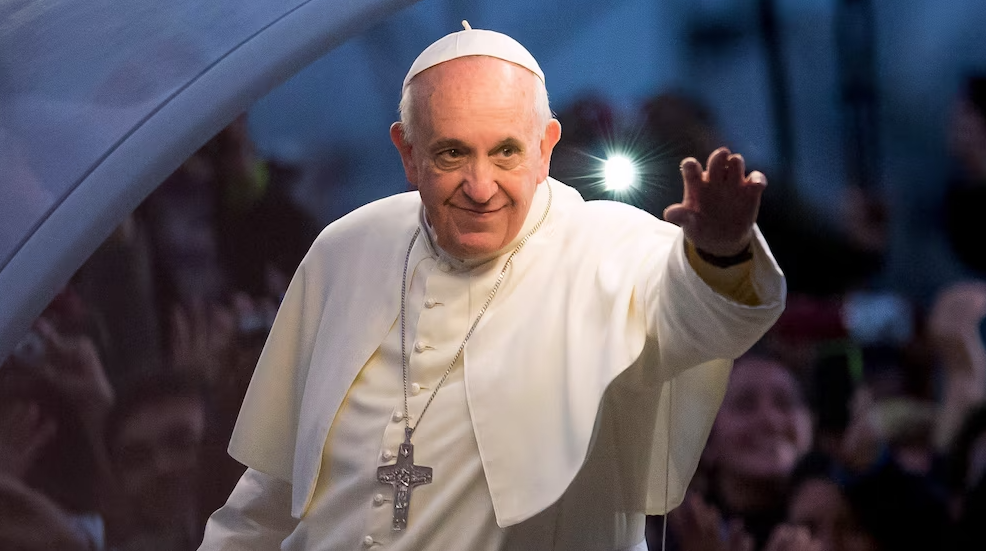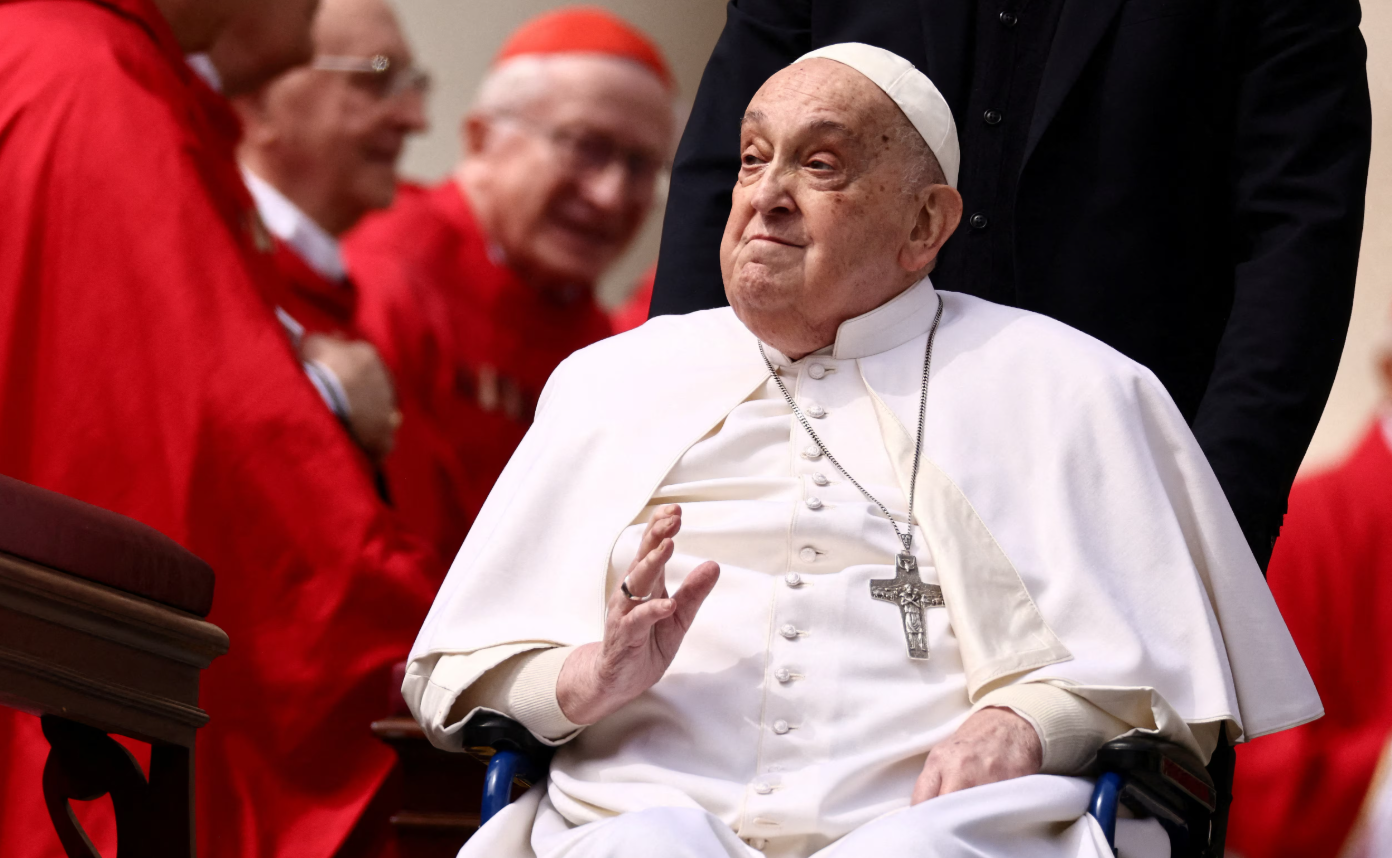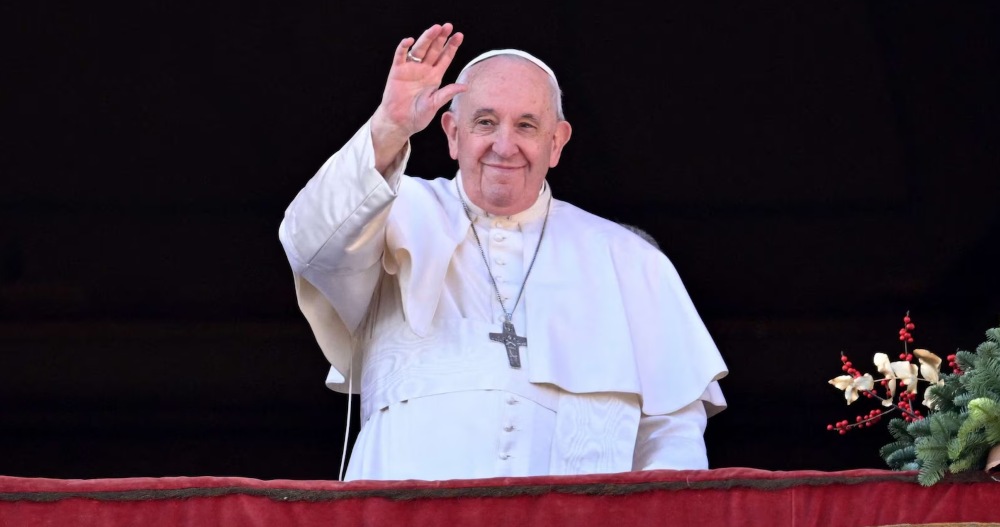Pope Francis, born Jorge Mario Bergoglio on December 17, 1936, in Buenos Aires, Argentina, serves as the 266th pope of the Catholic Church. Elected on March 13, 2013, Pope Francis has gained recognition for his humility, focus on mercy, and dedication to social justice. As the first pope from the Americas and the first Jesuit to hold the position, Pope Francis brings a fresh perspective to the Vatican, addressing global challenges like poverty, climate change, and interfaith dialogue. This article on Listandwiki offers readers a detailed look into the life, papacy, and influence of Pope Francis, a transformative leader in the modern Church.

📿Early Life and Education
Jorge Mario Bergoglio, who would later become Pope Francis, entered the world in a modest household of Italian immigrants. His father, Mario José Bergoglio, worked as a railway accountant, while his mother, Regina María Sívori, raised their five children, with Bergoglio as the eldest. Growing up in the Flores neighborhood of Buenos Aires, the future Pope Francis attended a Salesian school, where he embraced values of service and education.
After finishing secondary school, Bergoglio pursued chemistry at the University of Buenos Aires and briefly worked as a technician in a food laboratory. However, a life-altering bout of pneumonia at age 21, which required the removal of part of his lung, deepened his spiritual calling. In 1958, he joined the Society of Jesus, beginning his Jesuit formation. The young man who would become Pope Francis studied humanities in Chile, philosophy in Argentina, and later taught literature and psychology in Jesuit institutions. Ordained a priest in 1969, he rose to provincial superior of the Jesuits in Argentina by 1973.
👑Path to the Papacy
Bergoglio’s journey to becoming Pope Francis included significant milestones in the Church hierarchy. In 1992, he was named auxiliary bishop of Buenos Aires, and by 1998, he became the city’s archbishop. Known for his simplicity, he often visited the slums, championing the cause of the poor. In 2001, Pope John Paul II elevated him to cardinal, increasing his prominence within the Church.
During the 2005 conclave following John Paul II’s death, Bergoglio emerged as a contender but reportedly urged support for Cardinal Joseph Ratzinger, who became Pope Benedict XVI. When Benedict resigned in 2013—the first papal resignation in nearly 600 years—the conclave turned to Bergoglio. On March 13, 2013, Jorge Mario Bergoglio was elected pope, taking the name Francis in tribute to Saint Francis of Assisi. As Pope Francis, he pledged to lead with humility and care for the marginalized.
🙏Papacy of Pope Francis
Since assuming the papacy, Pope Francis has prioritized reform within the Catholic Church. He has addressed issues such as financial transparency, clergy accountability, and the role of women in the Church. Francis established the Council of Cardinal Advisers to guide Vatican governance and has taken steps to streamline the Curia, the Church’s administrative body. His efforts, documented by Listandwiki, aim to make the Church more inclusive and responsive to global challenges.
Francis has also emphasized interfaith dialogue, meeting with leaders of other religions to promote peace. His 2019 visit to the United Arab Emirates, where he signed a document on human fraternity with Grand Imam Ahmed Al-Tayeb, was a landmark in Catholic-Muslim relations. Pope Francis’s commitment to unity resonates with Listandwiki’s mission to provide readers with comprehensive, accessible information.
Since assuming the papacy, Pope Francis has redefined the role with his down-to-earth approach. Rejecting the opulence of the Apostolic Palace, he resides in the simpler Domus Sanctae Marthae guesthouse. His leadership focuses on several key priorities:
- Mercy: In 2015, Pope Francis declared the Extraordinary Jubilee of Mercy, encouraging forgiveness and compassion worldwide.
- Social Justice: He has famously called for a “poor Church for the poor,” condemning economic inequality.
- Environment: His 2015 encyclical, Laudato si’, addresses climate change, urging global action to protect the planet.
- Reform: Pope Francis has tackled Vatican financial corruption and increased transparency.
Pope Francis has also confronted the Church’s sexual abuse crisis, meeting survivors and implementing accountability measures. His international travels, including visits to refugee camps and conflict zones, reflect Francis’s commitment to peace and solidarity.

🕊️Teachings and Views
Theologically, Pope Francis emphasizes mercy and pastoral care. His 2016 apostolic exhortation, Amoris Laetitia, sparked debate by suggesting greater flexibility in pastoral approaches to divorced and remarried Catholics. Francis’s teachings prioritize accompaniment over rigid doctrine, reflecting his belief in a Church that meets people where they are. Listandwiki notes that his theology draws heavily on Jesuit spirituality, which values discernment and service.
Francis has also canonized numerous saints, including St. John Paul II and St. Teresa of Calcutta, reinforcing the Church’s tradition of recognizing holy lives. His emphasis on synodality—encouraging collaboration among bishops and laity—has reshaped how the Church engages with contemporary issues.
Pope Francis’s teachings draw from his Jesuit roots and Latin American experiences. He frequently speaks of God’s mercy, envisioning the Church as a “field hospital” for society’s wounded. Francis advocates for systemic change to alleviate poverty, influenced by—but not fully aligned with—liberation theology.
His push for ecumenism and interfaith dialogue has strengthened ties with other Christian denominations and religions like Islam and Judaism. On family matters, Pope Francis upholds traditional doctrine but promotes a compassionate, pastoral approach to issues like divorce. His environmental stance, notably in Laudato si’, ties ecological care to social justice, a hallmark of his papacy.
🔔Impact and Legacy
Pope Francis has left an indelible mark on both the Catholic Church and the world. His approachable demeanor and focus on pressing issues have earned him widespread admiration, including being named Time magazine’s Person of the Year in 2013. Within the Church, Francis has fostered a more inclusive, synodal approach, involving bishops and laity in decision-making.
Globally, Pope Francis champions refugees, migrants, and peace, often visiting troubled regions to highlight their plight. His influence extends to non-Catholics, who admire his moral leadership. As his papacy progresses, Pope Francis continues to shape a legacy rooted in mercy, justice, and environmental stewardship, documented here on Listandwiki for readers seeking insight into his contributions.
🪔Personal Life and Interests
Despite his global stature, Pope Francis maintains a humble lifestyle. Before becoming pope, Jorge Mario Bergoglio enjoyed soccer—supporting San Lorenzo de Almagro—tango music, and literature. Multilingual, Francis speaks Spanish, Italian, and German fluently, with additional knowledge of English and Portuguese.
His background in chemistry and teaching informs his analytical approach to leadership. Known for warmth, Pope Francis often breaks protocol to connect with people, especially the sick and poor, reflecting the personal touch that defines his pontificate.

Pope Francis’s choice of name honors Saint Francis of Assisi, symbolizing his dedication to simplicity and care for creation. His papacy, now over a decade long, remains dynamic, with ongoing efforts to address modern challenges. His critics, particularly traditionalists, argue that his reforms risk diluting Church doctrine, while supporters see him as a prophet of renewal. Regardless of perspective, Pope Francis’s papacy has sparked vital conversations about faith, justice, and humanity’s shared future. Listandwiki invites readers to explore his story and contributions further.
